Boardroom splits over gaming reforms and corporate governance lit the fuse to a civil war
The civil war within the Endeavour board, which has quickly turned into an unedifying public spectacle, was partly sparked over pokies trading hours as warring camps circle each other.
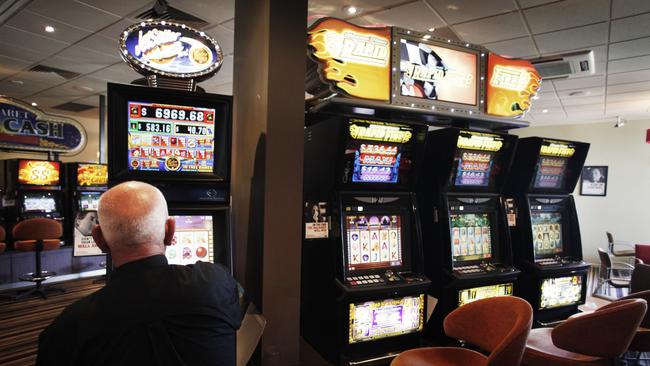
The civil war within Endeavour’s boardroom that broke into full public view last week was partly ignited by a management decision in July to jump ahead of Victorian gaming reforms that set down new rules limiting trading hours for pokies venues.
That decision – which some saw as virtuous, others as reckless – greatly strengthened Endeavour’s social responsibility credentials, but at the same time angered some directors, concerned about lost earnings as its large portfolio of Victorian pubs and hotels failed to “sweat the assets” before the new trading hours came into effect.
Endeavour’s management, led by respected liquor chain industry veteran chief executive Steve Donohue, had only taken three days after the state government reforms on pokies venues to announce the early implementation of the reforms, closing its gaming venues between 4am and 10am. Some on the board argue directors were not given enough time to discuss the response to the reforms, and that slicing six hours from gaming room opening hours before the company was legally required to required the agreement of the board rather than a rubber stamp for management.
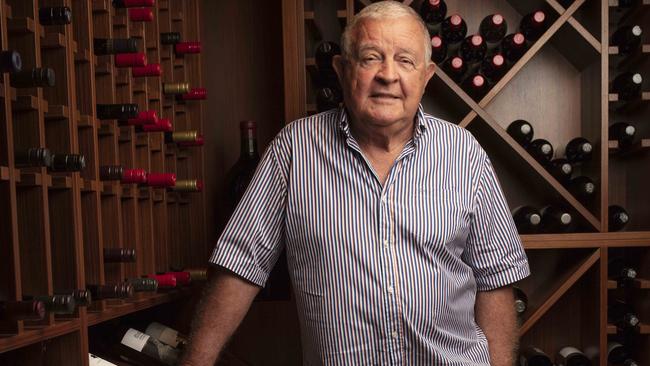
Endeavour’s management were also a strong cheerleader for the proposed introduction of $100 cash load limits in Victoria.
Once again the company was getting ahead of the curve, and regulations.
It should have been a moment for Endeavour and its management to proudly highlight their commitment to responsible gambling as industry leaders – instead it looks to have ignited a war with its biggest shareholder, the billionaire Mathieson family.
Bruce Mathieson Sr, the pub mogul who built his fortune on hotels and pokies, and is a 15 per cent shareholder in Endeavour.
He was angered further by the sharemarket reaction to the Victorian reforms and the decision to reduce pokies operating hours. Shares in Endeavour fell that week by 10 per cent, and fell again in August when Endeavour unveiled a full-year profit that undershot expectations.
Around 40 per cent of Endeavour’s gaming machines are in Victoria.
Some analysts see the reduced hours as immaterial to Endeavour’s bottom line – they could even save money by not having staff in the gaming rooms in the middle of the night – while others say that for every 1 per cent fall in pokie machine revenue, Endeavour’s pre-tax earnings would shrink by $6m.
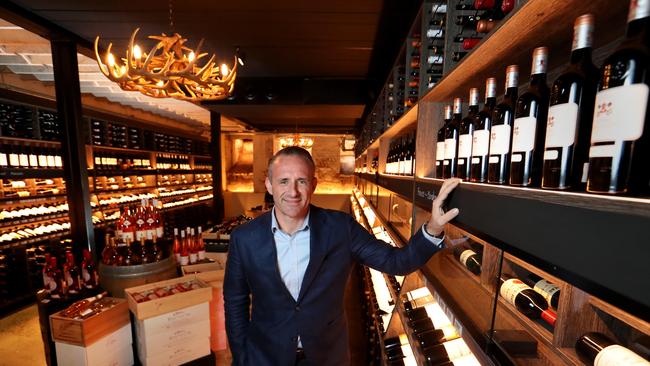
For months before tensions had been simmering over the balance Endeavour needed to strike between maximising revenue from its more than 12,500 pub and hotel gaming machines and adhering to gaming laws – and renewed community calls for further limits to be placed on the pokies.
This is where the civil war began. At the heart of the boardroom split, The Australian can reveal, are sharply opposing views among directors about Endeavour’s social responsibility in the operation of its gaming machines. Many Endeavour directors, past and present, support Mr Donohue’s strategy to have a “best in class” approach to responsible gaming and have been urging him to not just follow the law but get ahead of the curve – jumping ahead of the Victorian gaming reforms reflected this attitude.
One camp of directors – the majority – believes Endeavour must minimise harm flowing from the pokies and have supported Mr Donohue to deliver on this. The rival camp want Endeavour to adhere to any law around responsible gaming, but not go an inch more, to protect revenues.
There was surprise, frustration and anger from some sections of the boardroom when they were presented with the decision to adjust trading hours for its gaming venues in Victoria 10 months ahead of the timeline foreshadowed by the government.
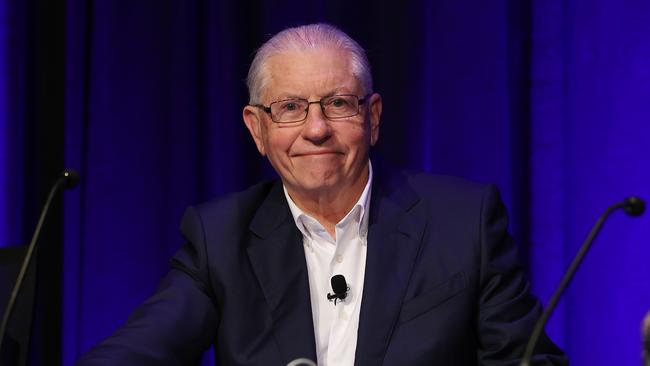
The strategy was delivered to directors as a fait accompli.
Some directors and investors believe Endeavour’s board, led by chair Peter Hearl, has been captured by management, led by Mr Donohue. This gave the CEO the freedom to run with a strong ESG strategy and decide to enact Victorian gaming reforms 10 months early.
The Endeavour brawl, now a corporate spectacle, is about the balance of power between the board and management and who is best placed to run the hotels and pokies arm. While there has also been criticism about the running of its liquor chains Dan Murphy’s and BWS by those at loggerheads with Endeavour and its CEO, the real fight is over pubs, hotels and pokies.
The boardroom insiders feel there wasn’t enough time to discuss, argue or challenge management on the gaming decision, and that the jump ahead of Victorian reforms was presented to directors as a ‘‘done deal’’.
The sharp fall in Endeavour’s share price since it listed in 2021 didn’t help, with around $3bn in market capitalisation evaporating, and this has angered Mathieson, whose family are down around $300m on their investment.
Then there is also talk swirling around Endeavour of a falling out between Hearl and Mathieson Sr, as well as between his son Bruce Mathieson Jr and Mr Donohue. One theory is that management’s successful bid in late 2021 to encourage Mathieson Jnr to move from being an executive in charge of Endeavour’s hotels to a non-executive director role – which he is currently – has fuelled bad blood between the Mathiesons and Donohue.
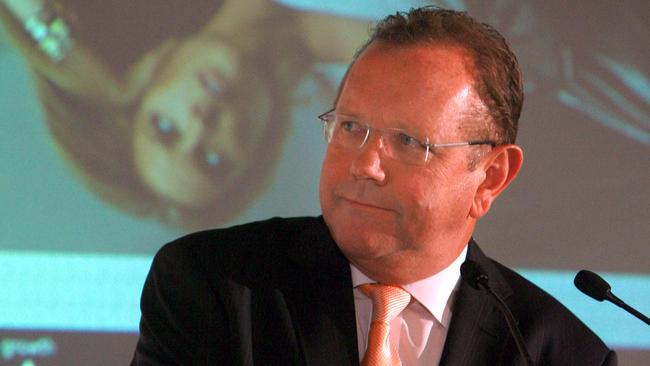
Many within the board are dismayed at how quickly the war has become so heated and personal, especially last week’s savaging of the well-liked Donohue by Mathieson Sr, who blamed him directly for Endeavour’s poor performance. This was a surprise to some given the Mathieson family fully supported Donohue being appointed CEO of Endeavour when it demerged from Woolworths in mid-2021.
The same goes for Hearl, with insiders telling The Australian the chairman had spent considerable time engaging with Mathieson Sr and building a relationship with the company’s largest shareholder.
However, acrimony, personal feuds and fights over strategy aside, many Endeavour insiders can’t understand Hearl’s refusal to allow shareholders to vote on retailer Bill Wavish’s bid to join the board just because he is yet to obtain regulatory and probity approval.
One individual who has racked up considerable time in the Endeavour boardroom – and is not aligned the Mathieson camp – believes Hearl has chosen the wrong battle to fight Mathieson Snr on and should allow a free vote by shareholders, with Wavish able to gain the necessary state and territory regulatory approvals later. It was Wavish’s decision to run for the board at next month’s AGM that lit the fuse for the corporate brawl now playing out.
The weighing in of former Woolworths boss, respected retailer Roger Corbett, into the brawl didn’t help, with his strong comments supporting Wavish and criticising the performance of the company’s flagship retail chain Dan Murphy’s seen as an unhelpful distraction and destabilisation.
There is also a growing feeling among directors that while Corbett is one of the smartest retailers Australia has produced, he operated in a different era where loyalty schemes and customer data were in their infancy or didn’t exist. They point to Dan Murphy’s market-leading loyalty scheme and data harvesting as proof of management success and reflective of a more modern retail strategy very different to when Corbett ran Woolworths, which then owned Dan Murphy’s as well as being an equity partner in Mathieson Sr’s pubs business.
The corporate governance and regulatory regime around gaming has also changed since Corbett was in charge, these directors argue, with new times calling for new strategies.
The next step in the battle will likely be a proxy war if Hearl refuses to allow a shareholder vote on Wavish’s candidacy.
Mathieson Snr has already asked his lawyers at Arnold Bloch Leibler to request from Endeavour a copy of its shareholder register.
But the two biggest investors are well known to Mathieson Snr and Wavish and they don’t need a share register search to get their contact details. Woolworths retains an 9 per cent stake and AustralianSuper has 7.6 per cent. Both have declined to comment on their voting intentions at Endeavour’s AGM, set for October 31.








To join the conversation, please log in. Don't have an account? Register
Join the conversation, you are commenting as Logout